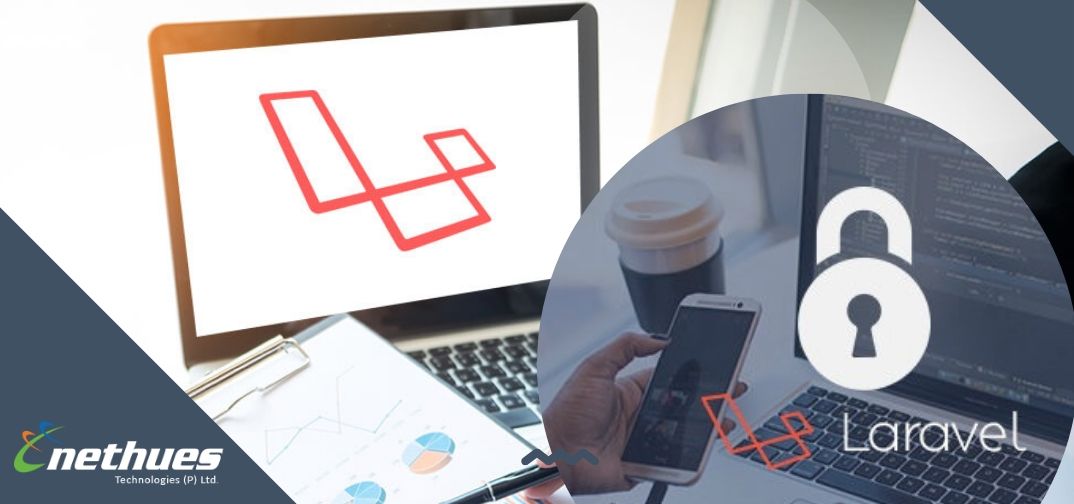Depending on which survey you believe, the market share of PHP currently stands somewhere between 70% and 80%. This means if you have visited 10 websites today, almost 7 of them were built on PHP.
Isn’t it shocking?
This represents the popularity of PHP and by extension, the risks it faces. After all, if 7 out of 10 websites are based on PHP, a similar proportion of the hacked websites too would be based on PHP.
However, popular PHP frameworks like Laravel eliminate this risk to a very great extent. While delivering robust security, Laravel boasts certain security features that ensure the utmost safety of applications, websites and safeguards them against common vulnerabilities.
The article narrows down those features so that Laravel developers can analyse, plan, adopt and act.
Laravel Security Features
Laravel provides some of the most prominent security features to reduce vulnerabilities in apps and websites. They are listed below:
- Laravel Authentication System
- Reduce Laravel Vulnerabilities From CSRF
- Protection against XSS (Cross Site Scripting)
- SQL Injection
- Laravel Security Packages
Laravel Authentication System
The answer to the question ‘how Laravel is secure’ is found in its authentication system. The framework takes care of most of the user authentication process and gives developers access to use the boilerplate code. In addition to this, Laravel uses “providers” and “guards” to facilitate its authentication process where “guards” authenticate users for each request they make and “providers” facilitate to retrieve back the users from the database.
So as a developer, you just need to set up the database, controllers and models, authentication features are automatically built into the app.
CSRF(Cross Site Request Forgery)
Laravel typically uses CSRF tokens to make sure that third-parties are unable to generate fake requests and breach security.
CSRF tokens are automatically generated for each active user session. As soon as a request is invoked, Laravel compares the request token with the previously saved token in the user’s session. If the token doesn’t match, the request is considered as invalid and the execution is immediately terminated.
If you are manually creating forms in standard HTML using Blade templates , you must pass the CSRF token there as shown below:
<form name=”test”>
{!! csrf_field() !!}
<!– Other inputs can come here–>
</form>
Protection Against XSS (Cross Site Scripting)
Cross-site scripting is yet another threat that generally attacks the database. Fortunately, Laravel features native support to prevent against XSS by not only protecting the database but any program that contains escape tags as the output in the form of HTML.
Consider a scenario where a blogging platform allows users to post comments on blog posts. Here, the user with malicious intent enters the following JavaScript code in the comments:
<script>alert(“You are hacked”)</script>
Now, if there was no XSS protection, Laravel vulnerabilities will increase as JavaScript will execute every time the page reloads. While the example code is not malicious in itself, it perfectly demonstrates the full extent of this attack.
SQL Injection
SQL Injection (SQL) is a hacking technique where destructive SQL statements are inserted into an entry field and executed. This gives attackers control over the database wherein they can modify, disclose or delete the data.
Laravel saves the day here with the help of Eloquent ORM (object relational mapper) which does not allow malicious query data to pass through your forms. Further, with PDO parameter binding, Eloquent ORM escapes these SQL commands and saves the invalid queries as text. All this clubbed together enhances the app and website security manifolds.
Laravel Security Packages
Apart from these, Laravel offers several packages to enhance the security of its applications. Let’s discuss the major ones:
Laravel Security Component: It mainly provides security for the roles/objects and integrates Symfony security core in Laravel.
Laravel Security: Laravel security is one of the most frequently used packages and is known for removing XSS vulnerabilities in the codebase. It has been ported from Codeigniter 3 into Laravel 5.
Laravel-ACL: It provides role-based secured permissions to the Laravel authentication process. The package helps to protect routes and CRUD controller methods in the applications.
Well, it is quite clear that Laravel’s security features can deliver high-level protection for your apps. Nonetheless, developers may encounter some situations, where the framework’s built-in protection might not suffice. So, let’s take a quick look at Laravel security best practices that ensure your preparedness for all situations.
Laravel Security Best Practices
Say No to Raw Queries: the security is further enhanced by avoiding raw queries since they increase the risk of SQL injection attacks.
HTTPS for Sensitive Data: If your app involves sensitive data, use HTTPS instead of standard HTTP. Reason: HTTP leaves your app vulnerable to attacks where all the confidential information including passwords is sent as plain text over the network.
Double Brace Syntax: Since Laravel is prone to XSS attacks, double brace syntax in the blade template engine must be employed. It guarantees safety while displaying the data in the variable.
Use Security Headers: Another way of enhancing app security with Laravel is to use security headers, which bring in an additional layer of protection to the web app or website.
Endnote
Laravel gives its users ample reasons to chose it, security being one of them. Afterall, an application or a website requires utmost security to be successful. If you are one of those developers or brands who use Laravel, then, implementing and knowing the in-built security features and practices is crucial.






